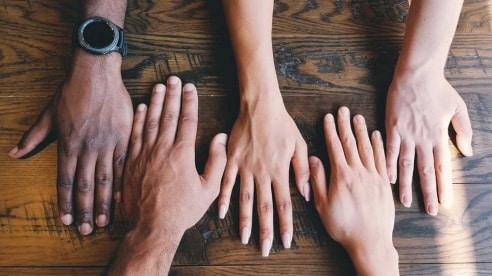Being a First Generation Australian

From bringing rice in school lunch boxes to waiting in line for a snag at Bunnings, it’s been quite a journey to discover what it means to be an Aussie.
My parents came over during the Vietnam War. They were barely adults at just twenty and twenty-one when they decided to leave everything behind.
Growing up I had no real understanding of what this meant or how big of a decision that would have been – but now that I am older than they were and am able to look at the privilege that I have given, I cannot be anything but eternally grateful for their bravery.
It wasn’t always like that though. I can only assume that most children of immigrant parents hated their heritage and wanted to be like everyone else.
We just wanted to eat white bread sandwiches, wear shoes inside the house and not always have to be our parent’s translators especially when we were learning to speak ourselves.
For a while it was almost embarrassing to be ethnic and worse to be seen in public with our immigrant parents. I hate that I ever thought that. We first generation Australians were just young and naïve; ignorantly unaware to the real struggles our parents were facing each day.
Despite their intelligence and work ethic – not being able to speak English certainly limited their options to make a decent living for themselves.
Yet somehow on minimum wage my parents were still able to put food on the table, clothes on our backs and a roof over our heads.
To this day, I am still in awe at how they managed to do such a thing.
Fast-forward thirty years and a wonderful amalgamation of east and west cultures have come together. My dad is dedicated to his football team, my mum suddenly is an expert in pasta salads and even though they still don’t have a complete grasp on the English language – phrases such as ‘chuck a uey, tomorrow arvo and c’mon mate’ have tricked into their vocabulary.
Speaking a different language and looking for employment were the obvious struggles that needed to be addressed while growing up - but some of the biggest challenges came from Aussie culture – what did it mean to be Australian?
My parents were repeatedly confused at the concept of sarcasm, why anyone would add apples to roast pork and to this day are still trying to figure out what the purpose of a ‘shoey’ is.
One of my favourite memories is when my parents had tried to make a dinner reservation at the local fish and chip shop – we even wore our Sunday best to experience ‘Aussie’ cuisine for the first time. I can still remember the shopkeeper an older woman named Debbie being so considerate and introducing our family to Australian hospitality.
She was patient and welcoming, which in the 90’s and from an immigrant perspective – was greatly appreciated. It was also the first time any of us had tried chicken salt, we have never looked back since.
We laughed together at how silly the whole situation was – my father was wearing a tie while eating a potato cake with a fork and knife. Debbie introduced us to her handy man husband should we ever need help with our home and told us about Vegemite, which beaches we should definitely head too and over time even helped my parents fill in documents.
Although we eventually became regular customers, our families also became friends. We wished each other happy birthdays with hugs and chats, exchanged tea flavours and cultural snacks and would always lend a hand when needed.
It took me awhile to realise but Australian culture or what it means to be an Aussie is not defined by the colour of your skin or necessarily where you were born – but more so by comradery. We are a nation of diversity - where everyone no matter your race, religion or even sporting team is treated as a friend and each city is just one big neighbourhood.
For the longest time there was an imbalance of identity – I don’t look like a typical Australian but also don’t associate with my parent’s cultural background. Overtime and meeting new people from all the places around the world, the big signifier that you’re Australian is seemingly a sense of humour, a welcoming laid-back attitude and an open mind.
I am proud to be the child of immigrants and am also proud to be Australian.
Read our review of movies about translation and our Aussie food guide.
Then there’s our tips on how to watch dubbed or subtitled movies.
Plus, there’s lots of International movies available on Netflix via Optus SubHub.
Travelling to Australia from overseas? You might like to try our Optus Traveller plans.
Related articles
7 ways to celebrate Earth Day with your family
22 April 2025
Sustainability and climate change is top of mind for many of us. The 55th anniversary of Earth Day is the perfect time to i...
Camping tips for the autumn holidays
13 April 2025
When autumn rolls around, camping trips are top of mind. It’s the perfect time to pitch a tent and enjoy the school break o...
How to help your child use AI safety
5 March 2025
Technology is evolving rapidly, and artificial intelligence (AI) is now a part of our everyday lives. From Google Maps sugg...
